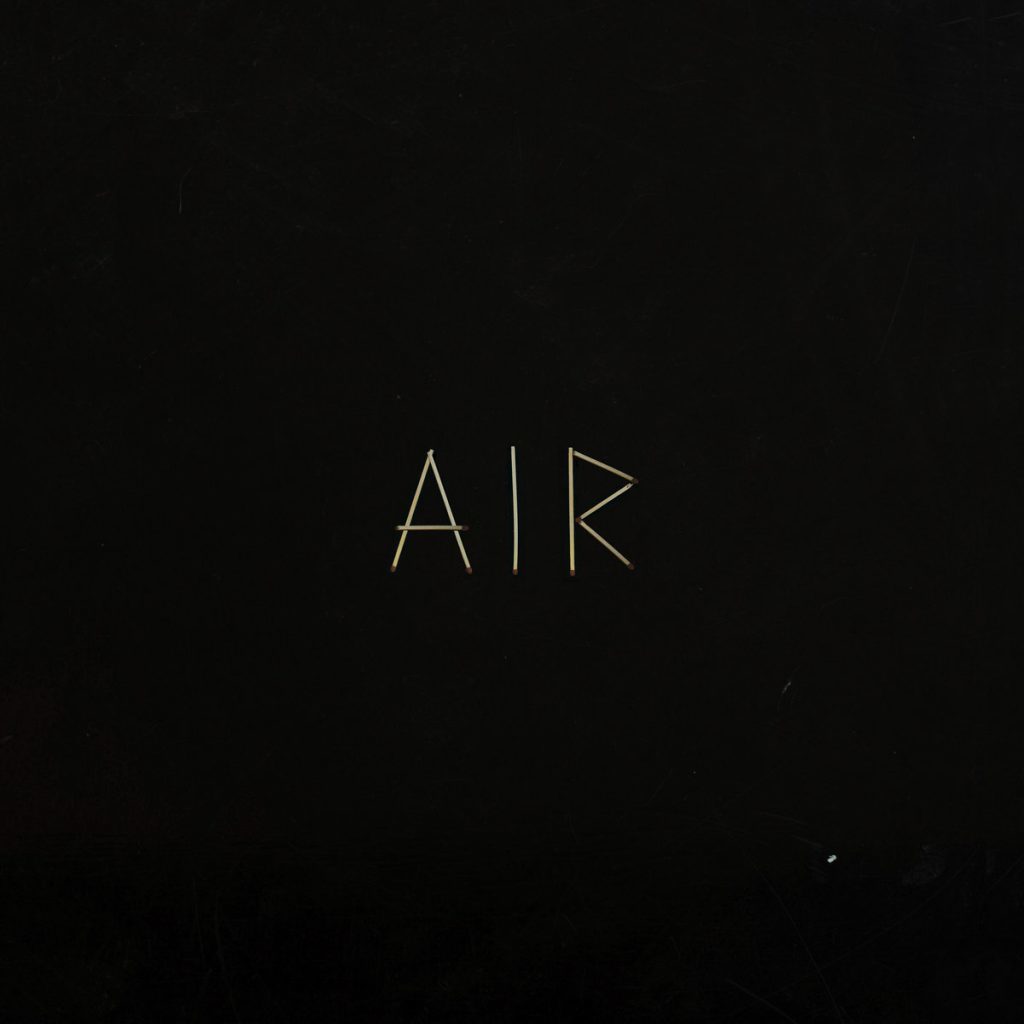Share This Article

The summit has been reached. The artist is left poised precipitously on a creative aiguille. There is no higher peak. There is no ground left to conquer. Only true sky-reachers seek higher heights. I have no doubts that SAULT, aka Dean Josiah Cover, was pointedly tiptoed in such a place prior to writing AIR.
Reality is operatic. Cyclical pulsing strings belly staccatoed and libretto-less choral notes. They oscillate beautifully. The scale is pentatonic and it floats. The string section gallops. I am reminded of Phillips Glass’s Akhenaten. This is theological Richter.
On Air I am nonchalantly oaring my sky-canoe through wisps of clouds and the dreamy blue. Its jazz strings provide buoyancy. The slow ride rushes glisten as I traverse hazy white into breezy clearings. The mono mezzo-soprano is heat-haze. The sun-glittering percussion touches the tips of waves of the old world below. The piano – a familiar friend – is a subtle hand that lets me go. My canoe slips away into the polychromatic, undulating on brassy ascents and descents
Harpy Heart is all pizzicato. The opening melody is the foundation of somewhere where we lived long ago. The glockenspiels are the brickwork of houses. The ascending brass are the hearth fires of stone. There are Gerschwin crescendos: we climb the stairs of this dwelling by way of the feather-light chorus. The house is eventually made roofless by the vocals that simply spill out to kite around the playful strings. The ascent begins.
The long synths of Solar hold and hold and undertow the cycling chorus. The horns are thrust bursts. The wind section is heraldic. Glockenspiels glint and shimmer and pulse. Chords are stacked fifths; their forward motion could move moons. The brass provides volume and strength. Future rhodes, theremin magicry and analogue pads lead into a grandstand choral finish. This is Alexander Courage conquering deep space in the ‘60s.
Time Is Precious is Bowie-falling-back-to-earth melody. Think cosmic kaleidoscopes. Think starry sequins. The brass is Aaron Copland: pioneer-spirited, triumphant, enduring. The neo-soul vocals – casual reminiscence of previous SAULT – make an appearance at the mid-point of this piece. They sing of the most elusive and untradeable of currencies: time.
On June 55 I am peering into the novel, the fantastical, the new worldly, the shimmering brilliance of a future time. I am at home. Advancing brass and reverse-tape sequences disorient me. Quietude follows. Warmer, fuller, sun-laden horns melt into rhythmic trombones and deep sprechgesang melody. It is a sort of gentler David Shire, with a choir and zithers.
Luos Higher is a sonic smoke signal. I enter somewhere akin to Andreas Vollenweider’s Caverna Magica. A thumping, all-tribe dance ensues: feet tread to an interplay of pizzicatos. The synergy is Crosby, Stills and Nash, except they are playing erhus, guzhengs and sanxians. It is communicating something that I cannot comprehend yet. I am on a higher plane. I am left truly at peace.
Back on the aiguille. AIR places its listener on a mountaintop observatory. The lens is a long one. It telescopes towards new sounds. It is mesmeric. It is circuitous. It never meets in the middle. Through its prism I eye optimism. Through this lens I can celebrate future times.
(Andrew C. Kidd)

The Monolith Cocktail è un blog indipendente con base a Glasgow, Scotland (UK).
Le ragioni della collaborazione tra Kalporz e The Monolith Cocktail puoi leggerle qui.
